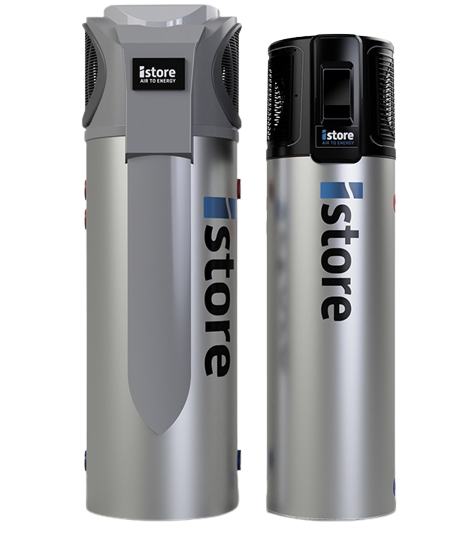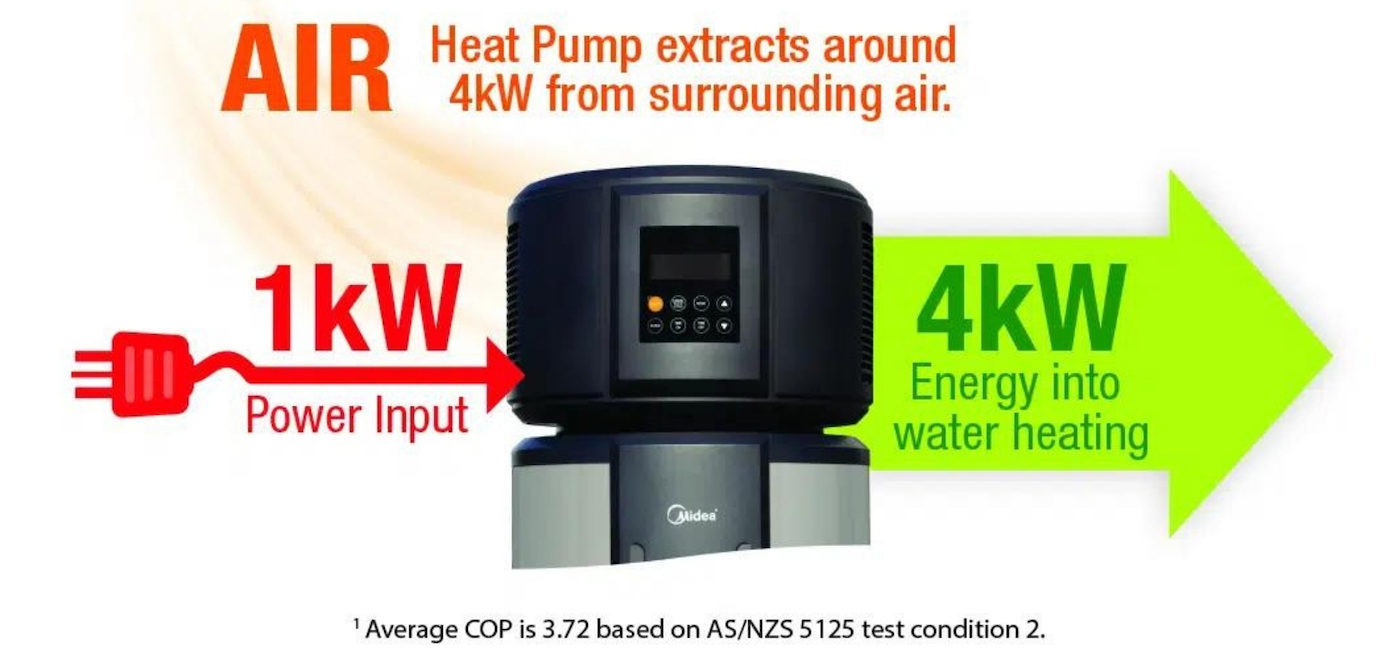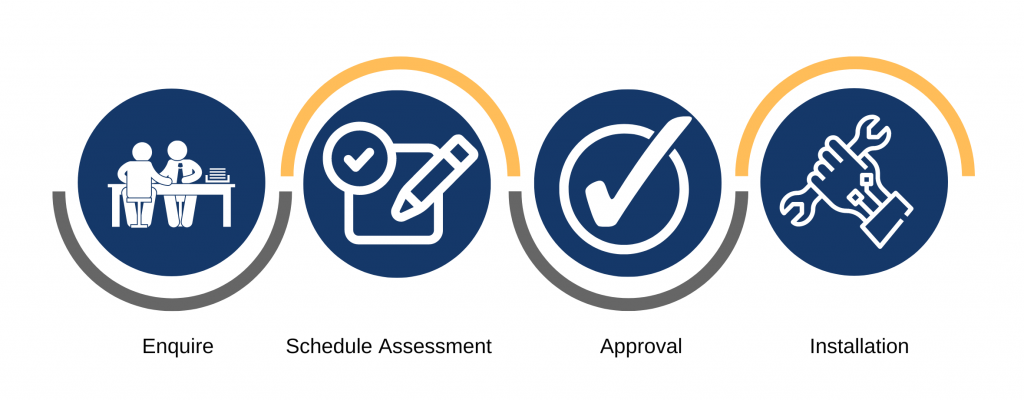- 27/5 Inglewood Place NORWEST, NSW 2153 (Head Office)
- sales@solarharbour.com.au
REDUCE YOUR ENERGY COSTS WITH HOT WATER SERVICE AND SYSTEM UPGRADE
For a little charge, households can update their gas or electric hot water system to an energy-efficient hot water heat pump. We are now able to provide our service for the delivery and installation of your new heat pump to qualified families at a greatly reduced rate, saving thousands in long-term costs. This is possible because to both State and Federal Government efforts. Your hot water running costs could be reduced by up to 70%!
- Every family may choose from a variety of heat pump sizes and brands from us, all of which come with fantastic Australian parts and labour warranties.
- Thousands of New South Wales and Victoria families are already saving hundreds on each bill with a new hot water system. Don't miss out!


Energy Efficient
Nearly a quarter of residential energy use goes toward heating water, which is the single largest source of greenhouse gas emissions. Heat Pump The efficiency of water heaters can be up to 70% higher than that of electric water systems.
Reduced Operating Costs
Operating heat pumps is less expensive than using combustion-based systems.
Less Maintenance
Compared to combustion heating systems, heat pumps require less maintenance.
Made for Australia
This heat pump has a broad operating temperature range with an ambient operating range of -7°C to +40°C. offers a variety of settings and operations to guarantee your hot water service uses the least amount of energy possible.
How Do Heat Pump Systems Work?
Heat pump water systems are, first and foremost, significantly more energy efficient than conventional hot water systems. This is due to the fact that they transmit heat from the air to the water using electricity rather than by producing heat themselves. They can therefore deliver the same quantity of hot water while consuming considerably less energy.

Renewable heat without solar panels – up to 350% efficiency
Reduce greenhouse emissions
Guaranteed hot water 24/7
By absorbing heat from the ambient air, a heat pump hot water heater warms your water using renewable energy without the usage of solar panels. The efficiency of conventional electricity-based water heating techniques can never be more than 100%. Heat pumps, on the other hand, can achieve an efficiency of up to 350% or more because they extract heat from the atmosphere and only need electricity to power the compressor.
Despite using energy, heat pump hot water systems are much more effective than conventional water heaters. When compared to traditional gas water heaters, these systems have a 65% lower carbon footprint, saving you money and energy while lowering greenhouse gas emissions.
Regardless of the weather, you may have continuous and immediate hot water all day long with a heat pump hot water system. The heat pump functions similarly to a reverse refrigerator by using a heat exchange system to transfer heat from the outside air to the water that is stored inside. In the case of heat pumps, "heat" is a relative term because they can operate in temperatures as low as -10 degrees Celsius, which means they can still heat water for you on icy winter evenings.
Steps to save your electricity

Get your Hot Water System Upgrade Now.
Upgrade to heat pump system just for $33* (This scheme is available both the states in NSW & VIC)
How does it work?
A heat pump works by transferring heat, not by converting electrical energy into heat. A heat pump water heater removes energy from a low temperature source (ambient air) and moves it to a high temperature hot water tank. Electricity is simply used to upgrade the quality of heat energy not to generate heat energy.
The basic principle of a Heat Pump water heater is similar to a refrigerator working in reverse. When hot water is drawn off, cold water enters the tank. A thermostat then activates a fan, compressor and circulation valve. A fan draws outside air in through the air inlet at the top of the water heater and the pump circulates water from the bottom of the storage tank and through a heat exchanger. Heat is absorbed from the air by an evaporator and transferred into the water through the heat exchanger.
The resulting cold air is then discharged through the air outlet back to atmosphere and the heated water is circulated back into the top of the storage tank. This process continues while ever heating is required until the water in the storage tank reaches a temperature of 65°C.
Even on cold days, heat is drawn from the surrounding air. The heat pump will operate at ambient air temperatures between 5°C and 55°C. The booster heating unit will operate when the air temperature is below 5°C, if heating is required. The efficiency of the water heater increases as the surrounding air temperature increases.
What happens if there’s no sun, or it’s the middle of winter?
You’ll always have hot water. Your new heat pump water heater is designed to provide you with all the energy efficient hot water you need 24 hours a day, 12 months a year, come rain, hail or shine.
Will I run out of hot water?
Your new heat pump system has the ability to deliver large amounts of hot water. However, as it is a storage type system, if you use all of the stored hot water in a short period, it will need approximately 4 to 5 hours to recover.
Does the refrigerant need topping up occasionally?
Like a refrigerator, your new heat pump is a sealed unit and does not require periodic ‘topping’ up.
Will the system over heat in summer?
Your new heat pump water heater is thermostatically controlled and is designed to operate at a maximum temperature of 65°C. As a consequence, the system will not overheat.
How long does it take to heat the water?
Depending on the heat of the stored water, as a general rule your new heat pump water heater will heat around 25 – 30 litres of water per hour. As such, it may take around 5.5 - 6 hours to heat the entire stored volume (170 litre model) from cold to 65°C.
Will my new heat pump be damaged by hail?
As there are no solar panels on the roof, there will be no hail damage.
What is the payback period for a heat pump?
Depending on what the comparison is being made with, i.e. the type of heater, type of tariff, the size of your family and the amount of hot water used. However, a payback period of around 5-7 years is not uncommon.
What range of tank sizes are available?
Solar Harbour is in partnership with multiple heat pump companies, we can always supply and install as per customs choice.
Few models which are popular are listed below.
1. Rheem
2.Midea
3.I Store
4.Eco Alliance
How many solar panels are installed on the roof?
Midea’s range of heat pumps do not have any solar panels on the roof at all. All the ‘solar’ heating occurs at ground level through our heat pump.
If we use all the hot water at night, will we have hot water in the morning?
Even though your new heat pump is a ‘solar water heater’ it doesn’t require sunlight. As such, it will heat water 24 hours a day, so you’ll have hot water whenever you need it.
Can our new heat pump be installed by anyone?
Although our systems are very simple to install, they do require the expertise of plumbing and electrical trades-people.
‘Home handyman’ type installations are very dangerous and illegal in all States & Territories. Small Scale Technology Certificates are also not available in these cases.
Why are heat pumps more efficient than electric or gas water heaters?
A heat pump only uses electrical energy to run the compressor, not to heat the water. The heat energy actually comes from the atmosphere. This allows an efficiency of up to 400%
How does taking energy from the atmosphere make it more efficient?
By using only a small amount of electrical energy to run the heat pump it can transfer 3 times this value, in heat energy from the atmosphere, into the water, giving an efficiency rating above 250% As an example, 1kW of electrical energy into the heat pump can transfer up to 4kW of heat energy into the water.
Where should our new heat pump water heater be installed?
As heat pumps operate more efficiently in warm ‘humid’ areas, they can work effectively anywhere there is a good airflow of warm air. External locations such as north facing walls are a good example. They can be installed internally, as long as they’re not enclosed in small unventilated rooms, as they’ll tend to cool their surrounds as they remove the heat energy from the air.
What are the environmental benefits of a heat pump water heater?
A Midea heat pump water heater may reduce your home’s greenhouse gas emissions by around 2.5 tonnes per year.
How much money will a heat pump water heater save me?
Exact dollar amounts are difficult to calculate due to the vagaries of differing usage patterns, varying electricity & gas costs and the unstable nature of weather patterns and differing locations. However as a rough rule of thumb, hot water can account for up to 30% of a household’s energy bills. A correctly sized heat pump water may reduce your hot water bills by up to 65% and even more in the Northern areas of Australia. The table below is a fairly accurate indication of ‘real world running cost comparisons over a 10 year period. Note: costs include the supply & installation costs of each system outlined.
I’m getting heat pump water heating when my current system breaks down – how soon can my new system be installed?
Hot water systems always seem to fail at the most inappropriate times, such as weekends, the middle of the night, or in the morning when you’re getting ready for work. As a consequence, customers quite often make the mistake of making a rushed decision to replace their existing water heater with another gas or electricity guzzler.
The beauty of a heat pump water heater, is that it can be replaced in the same amount of time it would take to replace a standard gas or electric water heating system.
